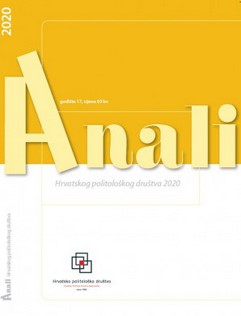Život Tranzitologije u Hrvatskoj Politologiji: Rancièreovski Pristup
The Life of Transitology in Croatian Political Science: Rancièrian Approach
Author(s): Tonči Kursar, Ana MatanSubject(s): Political Philosophy, Political Theory, Political Sciences, Political history
Published by: Hrvatsko politološko društvo
Keywords: Croatian political science; transitology; metapolitics; consensus democracy; Rancière;
Summary/Abstract: The authors use Rancière's theses on the ideological consensus in the social sciences, to confirm or refute ‘the end of transitology’ in Croatian political science. The research is based on articles published in the Croatian political science journal Politička misao in the three decades after the first multiparty elections in Croatia. The authors show that Croatian transitology is part of a comprehensive consensus on the complementarity of democracy and capitalism that emerged in 1989. The analysis of Croatian transitology, in the decade after the first multi-party elections, is based on Rancière's concept of (liberal) metapolitics. To explore the second decade of transitology, the authors use Rancièr’s concept of ‘consensual democracy’ which aspires to achieve identity between political form and the state of social relations. Croatian transitology of the second decade holds that the consolidation of democracy should be explained/supported by the introduction of 'non-political factors' such as the rule of law, civil society and democratic political culture. All these factors can be subsumed under Rancière's understanding of consensual democracy because they are intended to achieve the condition of identity. Although at present, transitology may seem obsolete, the article shows that (Croatian) transitology still lives a slightly different life by identifying various deviations and shortcomings in Croatian society. It achieves this by translating any deviation from the normative ideals of transition into a 'non-functional' or 'name of the problem' (Rancière), which then needs some predefined (reform) intervention. In this way we have teleological elements which reaffirm the desire for history to end in a universal formation made up of the unbreakable bond of democracy and capitalism.
Journal: Anali hrvatskog politološkog društva
- Issue Year: 2020
- Issue No: 17
- Page Range: 123-146
- Page Count: 24
- Language: Croatian

